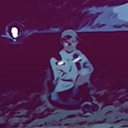A Coherent Guide on Poetry Reading (and Acting)

The single most important secret in poetry reading is to add natural emotions to our reading. That is what makes our voice charming and attractive. We should regard reading poems as an extension of film dubbing: that is, when reading aloud, we should imagine ourselves dubbing a film (such as an animated movie like Toy Story or Finding Nemo) where the character assigned to us is the author of the poem. This way, the verses we read out will sound far from the empty and faux aria on stage, but will have a soul that truly resonates with the audience in an attractive manner!

So, we’ve revealed the single most important secret, but how do we effectively dub the poet with our sincere emotions? Well, the best way to do that is not much different from acting a character in a movie or play: to imagine ourselves being the character with the same experiences, sadness, and happiness. This is the core of acting, thus the core of poetry reading. There are many acting theories one can learn in acting classes, but in practice, if we lose this core of acting, it’ll be nearly impossible for us to become truly great actors regardless of how many professional courses in film and television performance we’ve taken. In other words, all the sophisticated performance techniques in film and television performances are not as powerful as fully entering the role, which is why many inexperienced child stars can effortlessly surpass experienced older movie stars, leading many people to feel that children are the most unbeatable actors.

More specifically, here is the best method I know to quickly immerse oneself into the character’s world: “three chimes”. This technique is what my professor for an acting class I took in college used for role-playing practical training during class. The professor would hold a small bell and ring it three times and ask each student to make a promise: once we’ve heard the third chime, “I” will no longer be me, but the role I’m playing; “I” should have the same thinking, likes, anger, and personality as the character. Practically, it’s common for acting students and even professional actors to encounter situations where they are afraid of embarrassment and fully expressing themselves in front of friends, directors, teachers, and the audience. But once you remember the principle of “three chimes, I am the character” — ringing the bell three times in your heart as you step on stage, as a bridge, “I” is no longer the nervous and sensitive “me” who is merely performing on a stage, but the person or whatever character you play in your performance. For example, if in the film I play the role of a madman, then I will become that madman in the film; if in the film I play a robot, then all my actions and performances will be in sync with this robot. As a seemingly simple psychological tactic, this “bridge” will play an extremely strong role in practical application and likely become the fastest way to improve our performance ability.

So, again, the single most important secret in poetry reading is to add natural emotions to our reading by imagining dubbing the poet, and the single best way to effectively dub the poet with genuine emotions is to fully integrate ourselves into the role using a helpful bridge like the “three chimes” method. With all this in mind, you don’t have to be a professional acting major to read poems impressively. Your actual performance will surpass many experienced experts, for acting and dubbing are about and much more than techniques that can be accumulated through experience. Indeed, what’s interesting is that many theories from an expert who specializes in acting or dubbing and has extensive work experience often tend to view acting or dubbing as a more profound art, and attribute their achievements and abilities to their own works and rich experience. In other words, their theories give people the feeling that their level is not something that mere mortals can achieve because performing voice acting is a profound art that requires talent. On the other hand, an amateur who takes acting dubbing as a hobby tends to view this field as a low threshold, simple and popular industry rather than a profound art. Certainly, he or she also respects this field in a way that appreciates art, but in their eyes, this is by no means a daunting and profound art that must be diligently cultivated from basic skills to master. And in my mind, the perspective of amateurs is actually closer to the core of the field of acting dubbing. Too many frameworks can limit a seasoned expert, causing them to be constrained by their own style. In practical performance, we should never lose sight of this core, while we should liberate ourselves from trivial acting techniques taught in class — As long as we grasp the basis, which is to integrate ourselves into characters, the remaining “space” will be logically spanned by the “basis”.
Ivan Zhanhu Feng
Composed: December 2020
Revised: July 18~19, 2023
